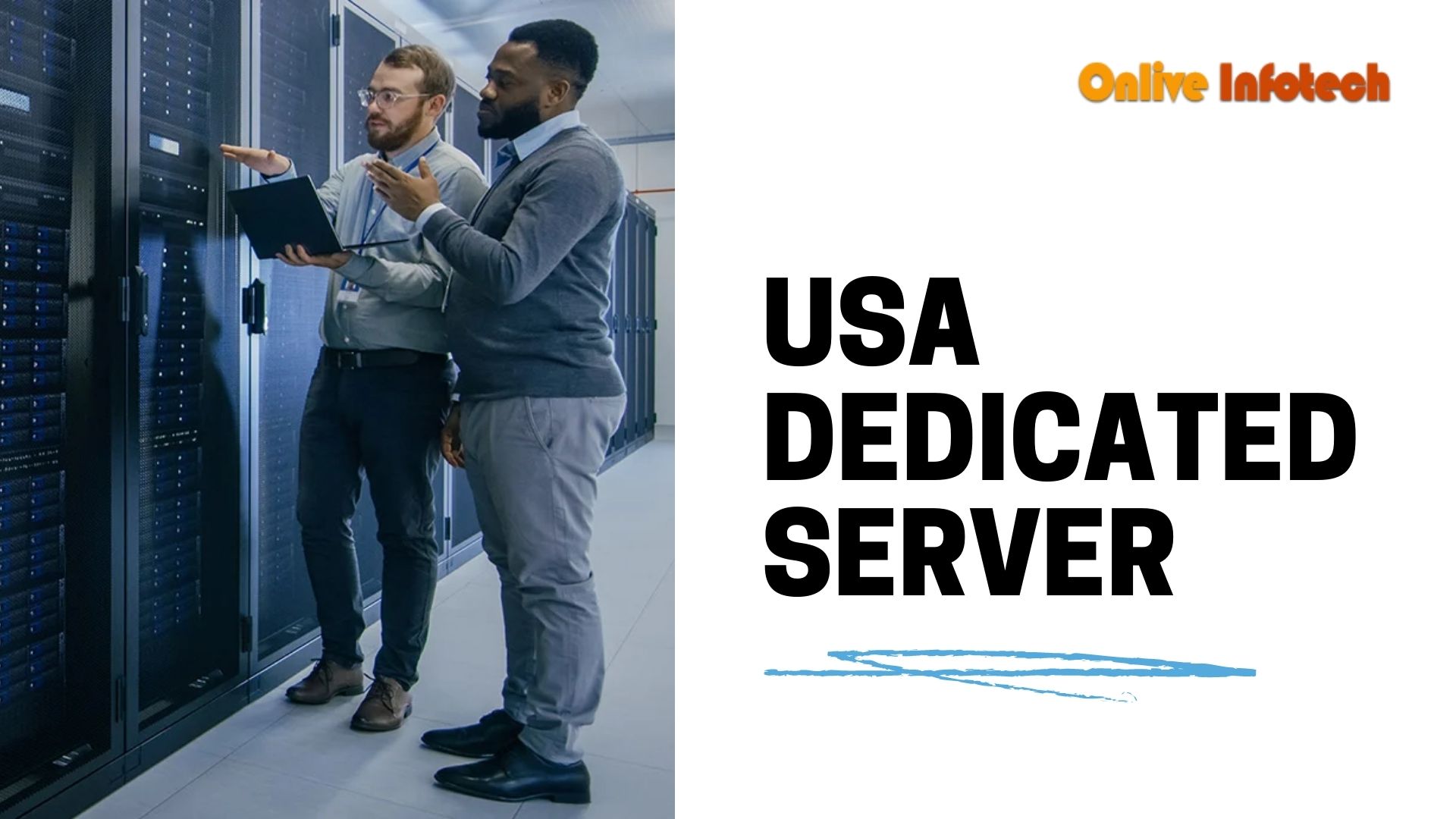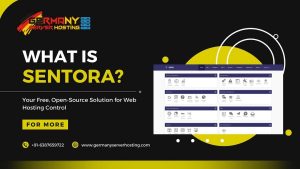
Know About Operating Systems
An operating system (OS) is a set of basic programs and services that allow your computer to interact with the hardware. An OS includes the essential components of a computer system, such as the Central Processing Unit (CPU), memory, and storage devices. The OS also helps manage these resources and provides an interface to applications and devices. The OS helps keep all applications running smoothly by regulating CPU, memory, and storage access. The USA Dedicated Server provides a consistent interface, enabling users to create access quickly and use applications. Many operating systems are available, but the most common are Windows and Linux.
What is an Operating System?
An operating system is a program that manages computer resources and provides standard functionality for your computer’s hardware. It lets you launch applications, access files, and send and receive messages. Therefore, The several operating platforms, including Linux, Mac OS, and Windows. Each has its features and advantages. For example, Mac OS is more user-friendly than Windows because it features a graphical interface that makes it easier to use. Linux is known for its robustness and flexibility, making it perfect for servers or embedded devices. There are many different operating systems (OS) types, but they all share many standard features. For example, most OSs includes kernels that manage low-level tasks such as memory allocation and process scheduling. Additionally, they have a layer of user interface that enables user interaction with the computer. This operating system is a basic program that controls how a computer works. Therefore, It helps manage files, displays messages, and lets you use the computer’s hardware. Most computers come with at least one operating system.
Essential functions of an operating system include:
- Booting: An operating system manages the start-up of a device.
- Memory management: An operating system manages memory by allocating space to various installed programmes and coordinating computer applications.
- Data security: An operating system protects your data from cyber-attacks.
- Drive/disk management: An operating system manages computer drives and divides disks.
- Device control: You can permit or prohibit access to devices using an operating system.
- User interface: This part of an operating system, or UI, allows users to enter and receive information.
- Process management: The operating system allocates space to enable computer processes, such as storing and sharing information.
Best Top 22 Operating Systems of 2023
Pick The Best OS for Your Business or Personal Use From This List:
MS-DOS – Microsoft Disk Operating System
- Mac OS
- Ubuntu
- Chrome OS.
- MS-Windows.
- Free BSD
- Windows 7
- Windows 10
#Linux Operating System
- Linux Fedora
- Slackware 15
- Zorin OS 17
- Linux Mint 21
- Pop_OS! From System76
- Ubuntu
- Debian
- Fedora
- Suse
- Centos OS
Other Operating Systems
- Android
- Debian
- iOS
- Amazon Fire OS
- SteamOS
Which Best Operating System is For Personal Use?
It isn’t easy to select an operating system. The most widely used operating system (OS) in the entire globe is Windows Dedicated Server. It is also the most popular choice for personal use. Windows 10 is the latest version of Windows and is very user-friendly. However, if you want to use a different operating system for personal use, there are other options available Linux is a popular option for personal use. It is free and open source so you can customize it to your preferences. Linux has many applications available, so you can find what you need without installing many separate programs. Linux is another option for personal use. However, macOS is as user-friendly as Windows or Linux. Windows is a popular choice for personal operating systems because it’s affordable and widely available. However, it doesn’t have as many features or applications as other options. This is a more expensive option but has various applications and features. Linux is often considered the most versatile option for personal use operating systems because it has a wide range of applications and parts and is free to use. It’s essential to consider your specific needs when choosing an OS for personal use, as each option has advantages.
Free Operating System Alternatives
We recognise that not everyone has the financial resources to purchase a premium operating system for their PCs. The bad news is not all, though, as free OS alternatives guarantee that your computer will continue to function. All the below options are available for download. Hence you can install them today.
Linux: Linux is free and will run on anything.
Chrome OS: Chrome OS is available on several Low cost and high-end laptops, like Chrome Books.
Free BSD: The contemporary iteration of the Berkeley Software Distribution, which has its roots in Linux. A syllable is another free option for users at home and in small businesses.
ReactOS: This operating system has advanced significantly since it was first released as a Windows 95 clone.
Conclusion
In Last! Discover the top 22 operating systems for your USA Dedicated Server provided by Onlive Infotech. Upgrade now for better speed, security, and performance! Selecting the right operating system for this hosting server is crucial for optimizing your applications’ performance, safety, and compatibility. This company offers an extensive range of top-tier operating systems, including CentOS, Ubuntu, Debian, Windows Dedicated Server, and many more. Whether you prioritize stability, flexibility, cutting-edge features, or seamless integration, our web hosting company has the ideal operating system to meet your needs. With our Best Dedicated Server in the USA, you get an isolated hosting environment and a promise of intensive, high-speed, and secure services tailored to your business requirements. Evaluate your needs, consider the unique features of each operating system, and make an informed decision to ensure the success of your dedicated server deployment.
FAQ – USA Dedicated Server (OS)
Q1. Can I upgrade the operating system of my dedicated server?
Ans: The operating system of your dedicated server can be upgraded, yes. To guarantee a seamless transition, planning and preparing for the upgrade process is essential. Depending on the specifics, upgrading the operating system may necessitate either a complete reinstall of the server’s operating system or an in-place upgrade. To decide the best course of action for upgrading the operating system on your dedicated server, it is advised that you speak with your hosting company or a certified system administrator.
Q2: Can I change the operating system of my dedicated server after it has been set up?
Ans: You can typically switch your dedicated server’s operating system once configured. The server’s operating system may need to be reinstalled entirely if the operating system needs to be changed, which could cause data loss. Before starting a functional system change, it is advised to backup any vital data.
Q3: How often should I update the OS on my dedicated server?
Ans: It’s crucial that your dedicated server’s operating system be updated frequently for security and performance reasons. Patching vulnerabilities with security upgrades shields your server from potential dangers. Following the operating system’s official update channels and installing updates as soon as they are made available are advised. To ensure you have the most recent versions and bug patches, it is also a good idea to routinely evaluate and update your server’s installed software and packages.
Q4: Can I install and run virtualization software on my dedicated server?
Ans: Depending on your chosen operating system, you can install and use virtualization software on your dedicated server. Onlive Infotech’s operating systems are compatible with well-known virtualization platforms, including VMware, KVM, and Hyper-V. Therefore, Ensure your dedicated server complies with virtualization’s hardware requirements and that your chosen operating system supports the virtualization software you wish to employ.
Q5: How do I ensure the security of my dedicated server’s operating system?
A: Some crucial practices include conducting regular backups, establishing firewalls, utilizing intrusion detection systems, employing solid passwords, and deploying security updates regularly. Additionally, you may protect your dedicated server by adhering to the security best practices suggested by Onlive Infotech and keeping up with new security risks.






